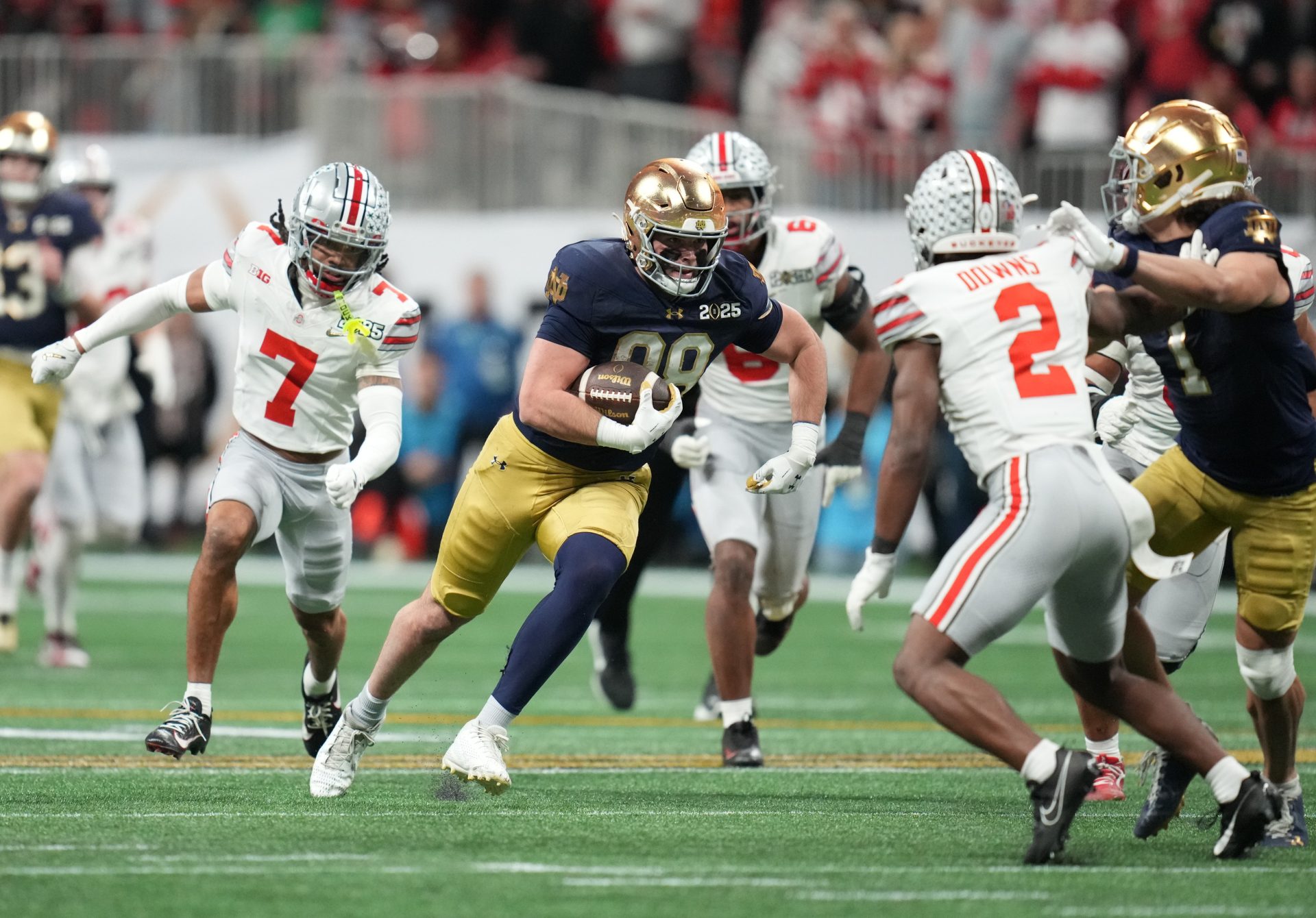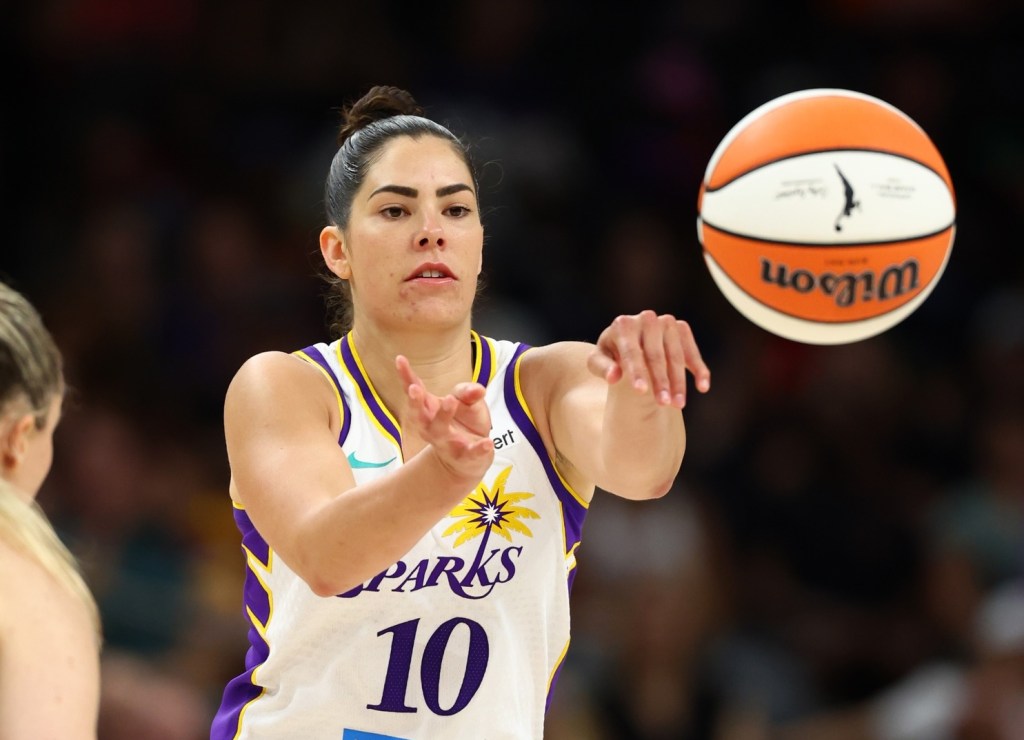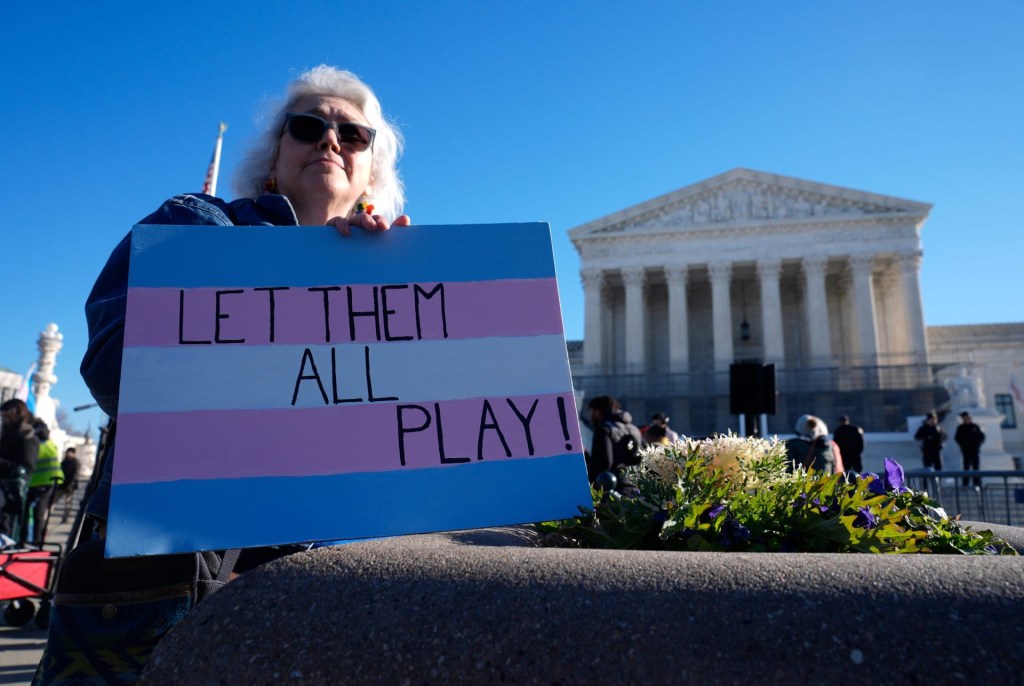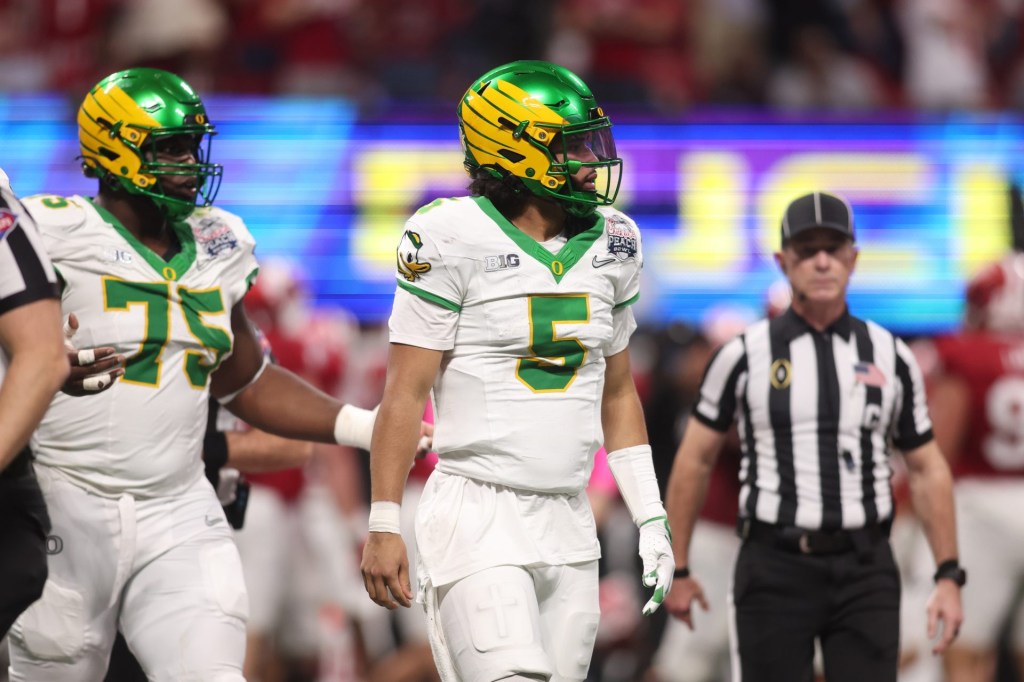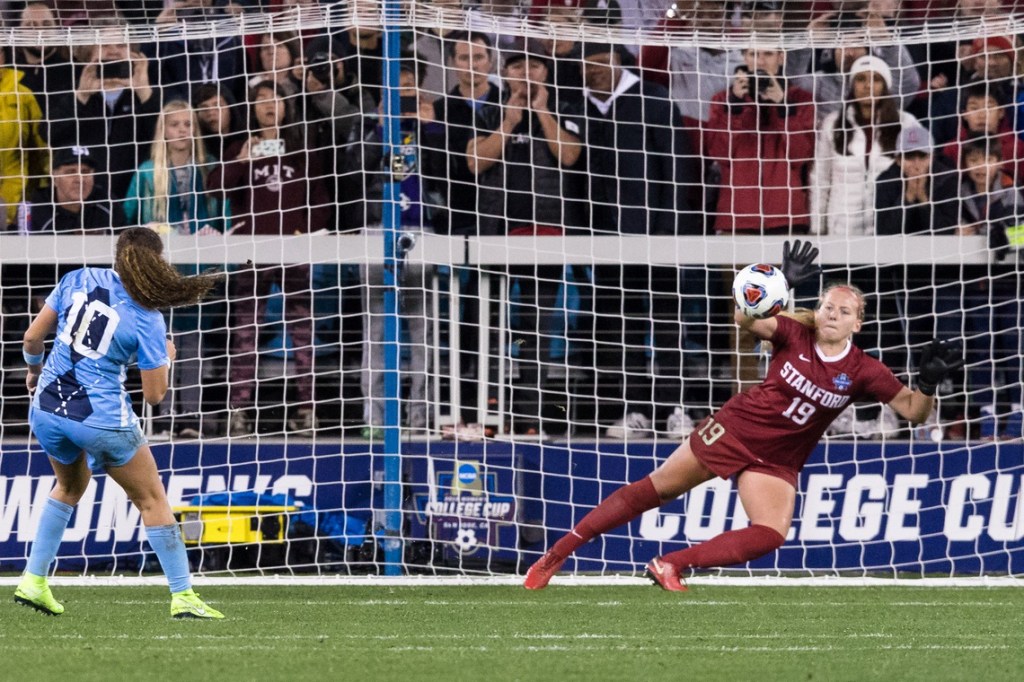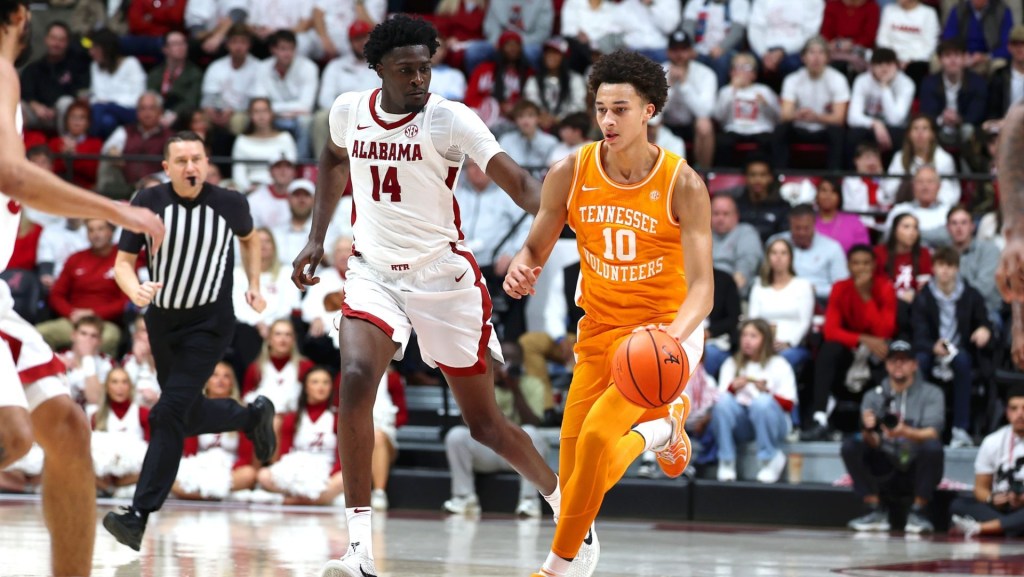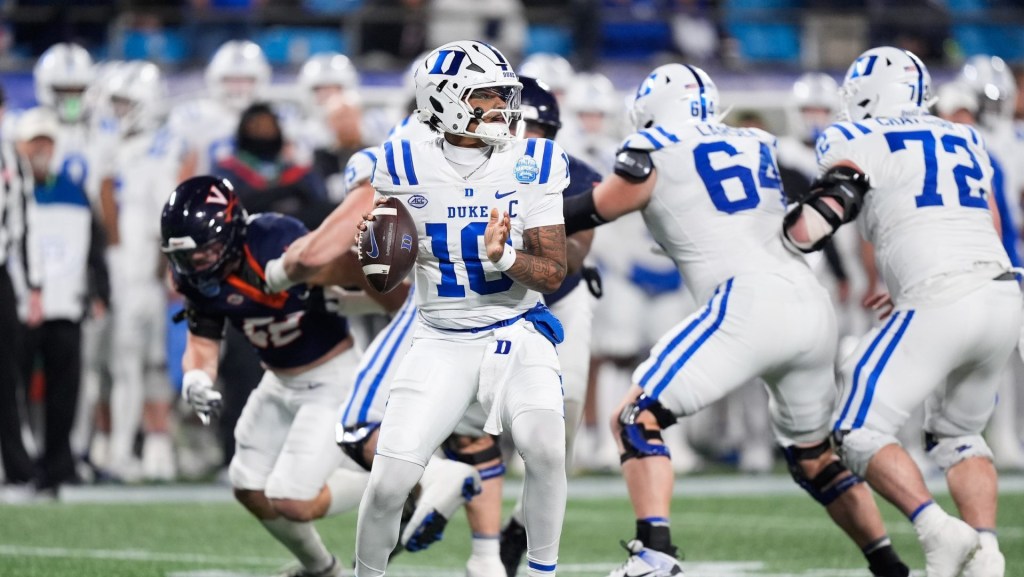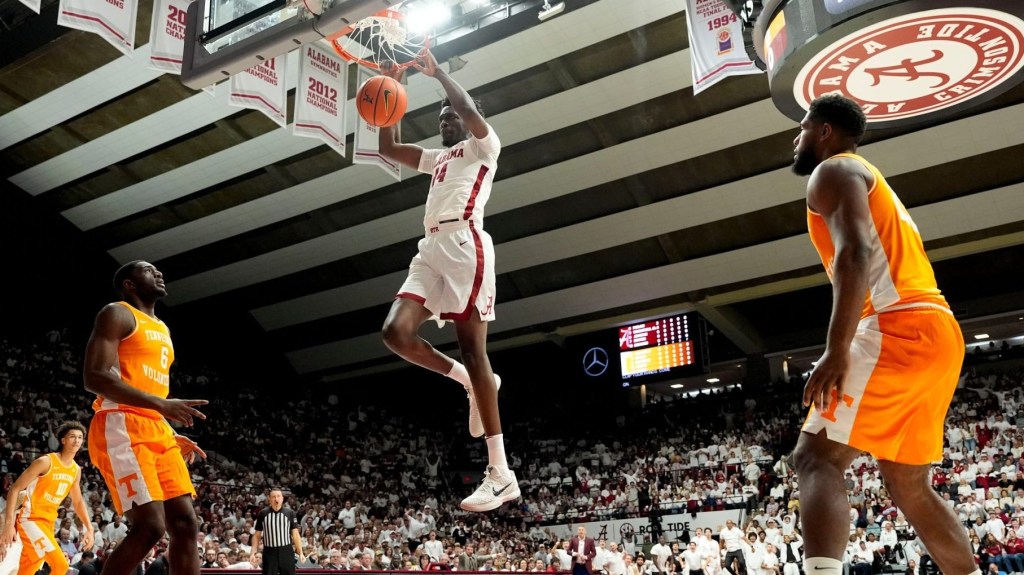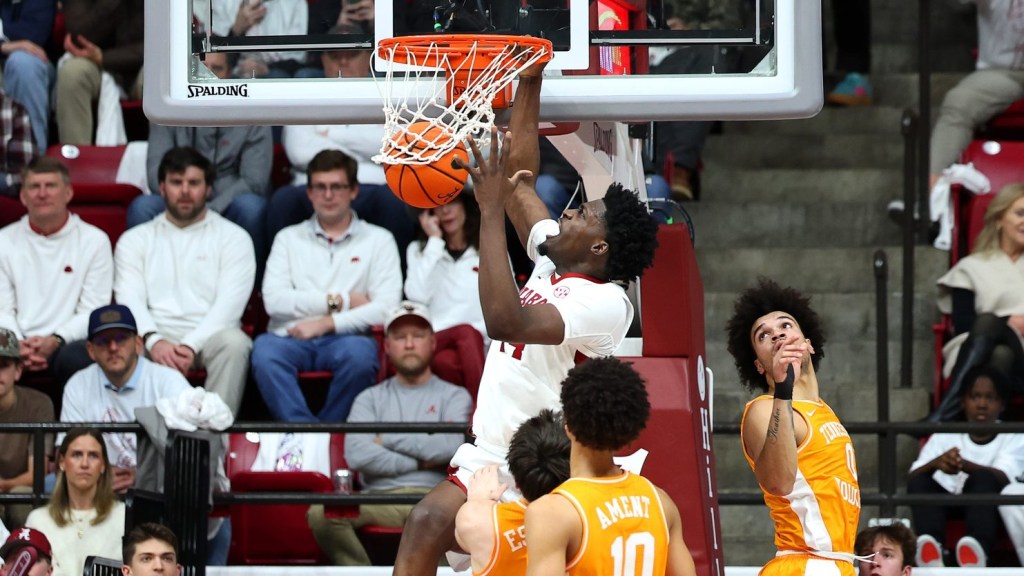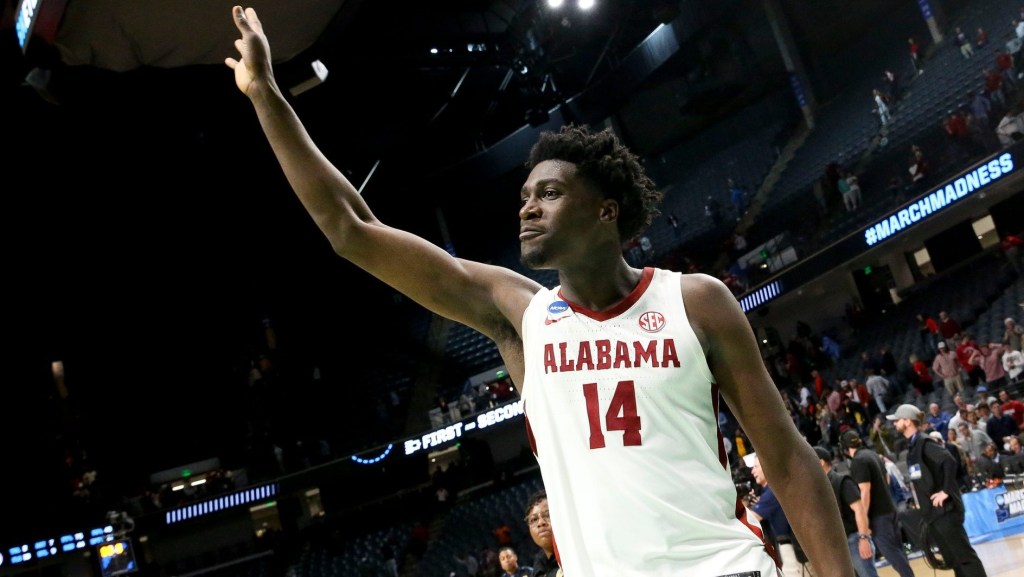On Thursday, President Trump made his first foray into legislating college athlete compensation with an executive order titled “Saving College Sports.”
Among its key goals: preserve the Olympic pipeline that runs through NCAA sports and safeguard women’s sports; prohibit “pay-for-play” NIL (name, image, and likeness) deals; protect the NCAA from antitrust lawsuits; and study athlete employment status.
In the short term, the order won’t have a drastic impact, congressional aides on both sides of the aisle and industry experts tell Front Office Sports. But it does offer, for the first time, a window into the Trump administration’s views on issues facing the future of college sports. Importantly, the order broadly aligns with the NCAA’s objectives and supports GOP efforts to legislate that agenda (most recently through the SCORE Act, which experts say would have more legal authority).
“The [executive order] is a helpful articulation of policy priorities,” one congressional aide tells FOS. “But the challenge for any EO, especially this one, is enforcement.”
The order’s most notable concrete action is an attempt to prohibit “pay-for-play” third party NIL deals. “It is the policy of the executive branch that third-party, pay-for-play payments to collegiate athletes are improper and should not be permitted,” the order says—though it clarifies that third-party, “fair-market” deals are acceptable.
Sources doubt the order has much force in that regard. “Pay-for-play has been prohibited by the NCAA since July 2021. So Trump isn’t breaking new ground there,” attorney Darren Heitner tells FOS. “The bigger question is what constitutional authority the executive branch has to regulate third-party payments to college athletes. I’m not seeing a clear legal pathway for federal enforcement here, especially when we’re talking about private transactions between athletes and businesses.”
The order also attempts to protect the Olympic pipeline, which runs through NCAA sports, from being decimated by program and scholarship cuts. Athletic departments that earn $125 million should increase Olympic sports scholarships and provide maximum roster spots; those that earn at least $50 million should provide maximum allowable roster spots and maintain their current scholarship amounts; and schools making less should not “dispropportionately” eliminate opportunities for revenue and non-revenue sports. The administration also wrote that any revenue-sharing (stemming from the House v. NCAA settlement) should not result in harming non-revenue sports.
Trump directs several agencies, including the attorney general and Department of Education, to plan to enforce these rules. But given that the administration has been working to dramatically cut down the size and scope of the Education Department, it’s unclear how these measures would be enforced. Heitner calls this “the real test,” adding, “Until we see concrete mechanisms for implementation, I’d say this EO has more bark than bite.”
The rest of the order provides little more than directives to various agencies to study and develop plans to advance Trump’s policies: The National Labor Relations Board should “clarify” athlete employment status, and the attorney general and FTC chairman should explore how to “stabilize and preserve college athletics,” presumably by fighting against antitrust lawsuits.
But ultimately, federal legislation would be needed to rule definitively on these issues. “The EO cannot stop the fundamental legal uncertainty from antitrust lawsuits being filed which challenge the NCAA’s rules,” the first aide says. Another congressional aide tells FOS: “Athletes will still be able to sue under antitrust laws if they feel their rights are infringed. … This all comes down to Congress and the courts.”
The NCAA and power conferences appeared to acknowledge this reality Thursday, when they applauded the executive action but reiterated requests for Congress to pass an actual law. For six years, the NCAA and conferences have been lobbying for antitrust protections, a denial of athlete employee status, and power to preempt state NIL laws. Trump’s executive order wouldn’t be nearly as strong as the pro-NCAA SCORE Act, which passed two committee markups this week and is on the way to the House floor. The NCAA and conferences are throwing their weight behind the bill, Big Ten commissioner Tony Petitti told FOS this week in Las Vegas.
At the very least, however, Trump’s order signals that he’s in favor of that wishlist to quell a system he sees as “out-of-control” and “rudderless.”
